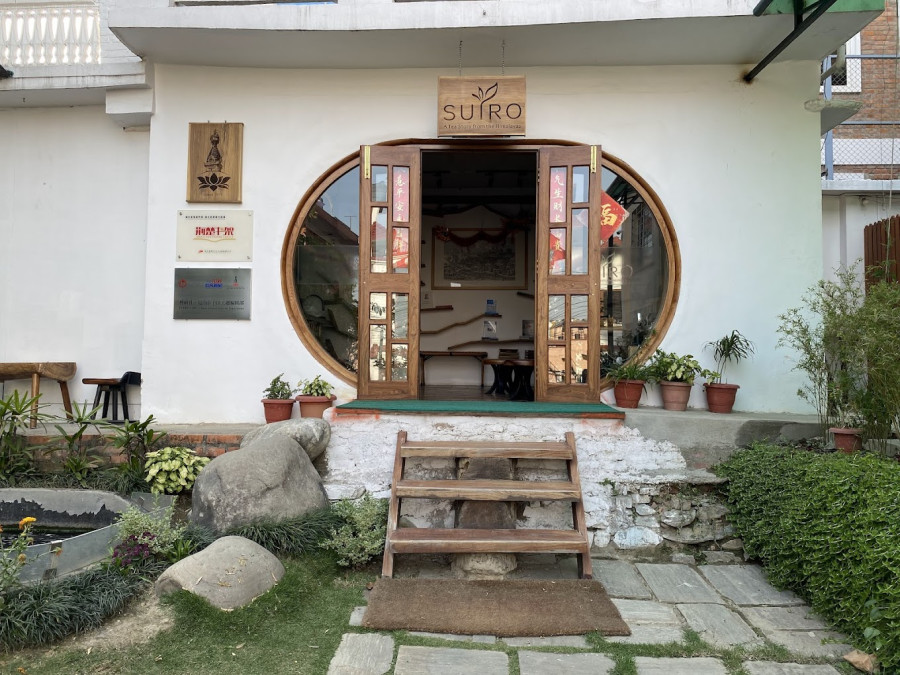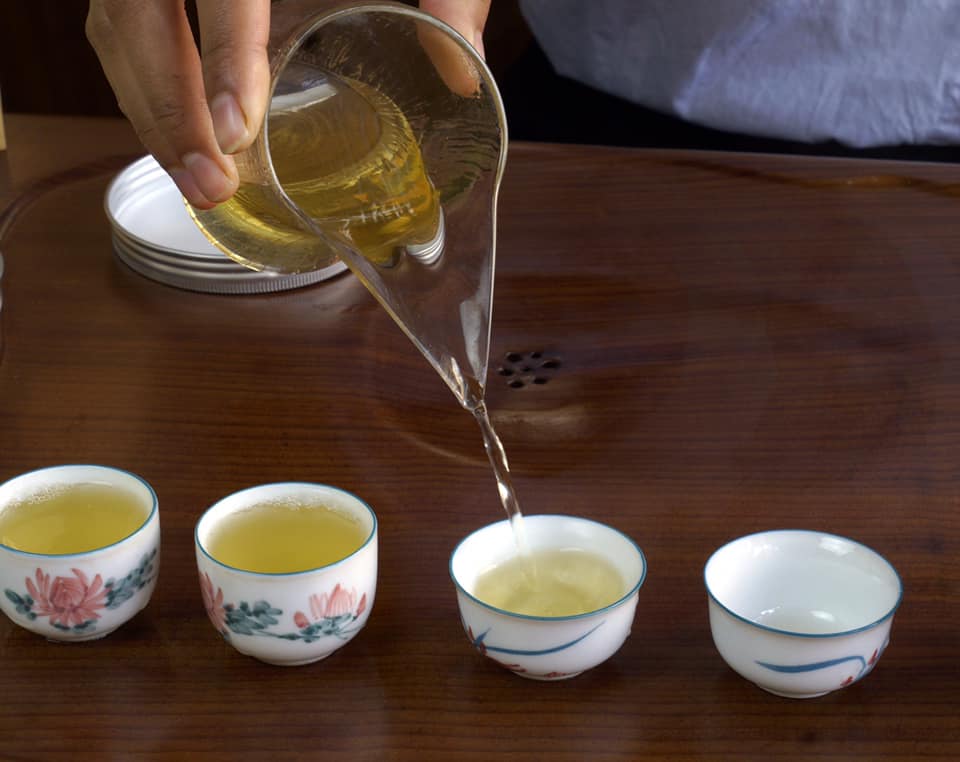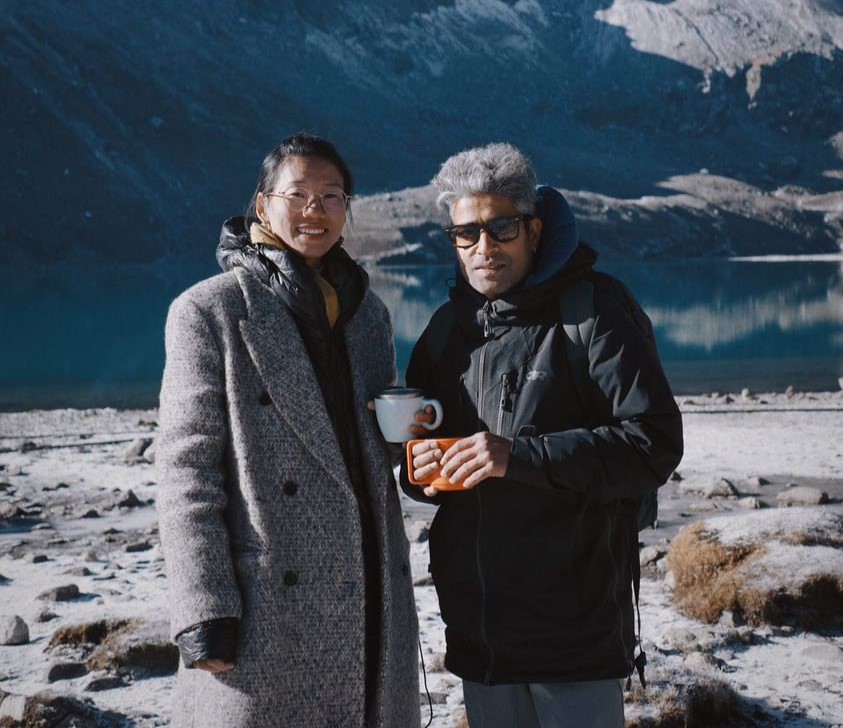Culture & Lifestyle
Artisanal tea from the Himalayas
Suiro Teas aims to transform Nepali tea culture with diverse offerings and an educational tearoom.
Anusha Dhakal
Though tea is the most prominent export and a significant aspect of Nepali identity, knowledge about tea, its flavours, and its medicinal uses has yet to permeate the Nepali mainstream. According to Anup Sharma, the founder of Suiro Teas, most Nepali households primarily consume milk tea and are unaware of the various tea varieties produced in Nepal.
Suiro Teas, an artisan tea brand, aims to change this by offering customers new tastes through its diverse selection, informational social media page, and beautifully designed tea room located in Baluwatar.
The brand endeavors to elevate tea awareness and culture by acquainting Nepalis with their locally produced teas. Through a diverse range of offerings, the brand seeks to establish a new norm where individuals not only enjoy tea but also actively engage in learning about its origins, flavours, and variations.
By fostering a deeper appreciation for tea beyond mere consumption, Suiro Teas aims to transform how people interact with this beloved beverage, encouraging a richer understanding and appreciation for its complexities and nuances.
Suiro sources tea from various parts of Nepal, including the tea haven of Ilam, Panchthar, Kailali, and Dhankuta. The organisation has collaborated with several tea masters throughout Nepal. Tea masters are individuals who are highly skilled in the art and science of tea. Their expertise spans cultivation, production, preparation and appreciation.
These blends include Uplift Tea to “energise” you in the morning, Beauty Blend for “better skin”, Potent Tea for “nutrients”, and Clarity Tea to “soothe your mood”.
This blend was created with the help of tea masters, taking into account flavour compatibility and medicinal usage. Suiro continually partners with producers and tea masters to improve the quality and selection of tea varieties it provides.
Oolong tea is a special kind of tea produced by a select few in Nepal. Despite its limited local consumption and low domestic demand, it is immensely popular in international markets. Anup Sharma, who co-founded Suiro with his wife, Hong Mei, says that most international buyers prefer buying loose tea from Nepali producers and often dismiss Nepali brands.
He calls for effective branding of Nepali tea so that Nepali producers can claim their home-grown teas and benefit economically from the sale of rare teas like Oolong.
Another notable variety of tea sold by Suiro is its selection of flower teas like hibiscus, rose, and butterfly pea. Sharma says that Nepal’s technology in tea drying and packaging is way behind and stresses more investment and change. He recalls customers complaining about insects in certain flower teas, something that puzzled him, as the producers had followed all specific guidelines.

It was discovered that simply sun-drying flowers was insufficient because insect eggs laid within them remained. “To prevent this, newer technology, like dehydrators, should be used,” says Sharma.
Nepal’s soil is remarkably well-suited for growing tea. There are over 150 tea farms in Nepal, which have grown significantly due to the support of various NGOs and INGOs. However, according to Anup Sharma, despite support from NGOs, formal support from the government is needed. The Government of Nepal has not done enough to amplify production or aid tea farmers.
Most tea producers and sellers must rely on their resources for equipment and meeting international standards. Suiro is no different. Sharma mentions that they had to make the entire investment on their own, without any assistance, to obtain international certification for their organic tea to sell globally. Hurdles like these discourage farmers and tea entrepreneurs.
“Suiro has worked extremely hard on international branding, despite challenges,” says the founder. This includes participating in international exhibitions, collaborating with artists for packaging, and ensuring a noticeable social media presence.
Suiro currently employs over ten people and supplies its tea to more than 150 cafes across Nepal. In addition to its Baluwatar outlet, Suiro Teas can be found at Hotel Hyatt as well as The Local Project.
A firm believer in sustainable business practices, Sharma believes that sustainability goes beyond packaging and branding. “Sustainability is circular, sustainability must start from production to distribution and maintain itself throughout. Without sustainability, there is no continuity,” he stresses.
Formerly a biotech scholar who taught in various schools, he says circulation interests him, which involves finding ways to effectively use tea waste. Having studied tea in China, he is now willing to fund scholars interested in researching how tea waste could be effectively used as a pesticide.

Sharma says Suiro’s prominent goal in the coming years is to be recognised as a brand, increase tea awareness in Nepal, and represent Nepali tea internationally. A passionate individual, with a knack for carpentry, he solely designed the tea room in Baluwatar. This space is also sustainable, featuring a koi pond that circulates water to help nourish other plants in the space.
“The initial goal of the tearoom was to help customers taste the tea before their purchase, but we are also slowly branching out to do formal tea tastings to increase knowledge of tea and establish tea culture,” he added. Tea has a vast diversity of flavours ranging from sweet, and bittersweet to even some teas resonating vegetable broth.
Addressing a common misconception that tea comes from different plants, Sharma says, “Black tea, green tea, and white tea come from the same plant, Camellia sinensis. The difference lies in the various processes involved in making these teas,”
Suiro’s blog also highlights the stories of tea farmers from various regions and features interesting tea recipes. The establishment also sells ceramics, including non-functional artistic ceramics from artist Gopal Kalapremi Shrestha.
Suiro Tea stands out due to its wide variety of teas and its dedicated tearoom, which aims to increase tea awareness in Nepal and establish a richer, more specific tea culture. The tearoom provides a space for tea enthusiasts to explore and appreciate the diverse flavours of Nepali tea, fostering a deeper connection to the local tea heritage. With its commitment to sustainability, and dedicated founders, the team, though small, is making significant strides toward success.




 22.65°C Kathmandu
22.65°C Kathmandu















